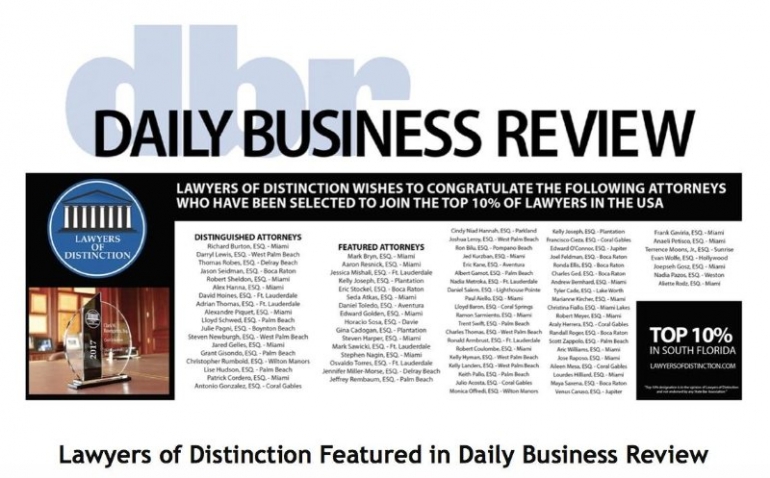As one court recently noted: “Web accessibility is about ensuring that all people are able to use the web regardless of any physical or mental disabilities.” It would behoove all businesses that have customer-facing websites to take steps to ensure they are equally accessible to everyone on the internet. In Gil v. Winn Dixie, a federal court in Florida found that supermarket giant Winn Dixie violated the ADA because its website was inaccessible to a sight-impaired plaintiff. The court ordered Winn Dixie to make corrections and to pay plaintiff’s attorney fees for taking the matter to trial. Below, I discuss how companies might avoid Winn Dixie’s fate.
Accessibility Standards
First, website owners should check whether their website and other customer-facing applications meet accessible standards. A simple web search can provide a myriad of online tools for checking accessibility. According to Tony Pizzi, president of TechSpring, an international software development and technology consulting firm that advises law firms and other businesses on technology compliance and security issues, “online web accessibility evaluation tools can be helpful in identifying accessibility issues. These tools provide automated checks and can be utilized throughout all phases of design and development. However, manual review and human judgement are still required, as very often evaluation tools produce false positives and misleading results.”
Determining what standard to adopt is a question that stymied Winn Dixie. With the Department of Justice recently abandoning a proposed ruling, there is no federal organization or rule that mandates requirements for accessibility. A good place to start for guidance is with the World Wide Web Consortium (W3C), a group of member organizations whose mission is to develop standards for the World Wide Web. W3C has developed Web Content Accessibility Guidelines (WCAG) as part of a series of web accessibility guidelines published by their Web Accessibility Initiative (WAI). The current version, WCAG 2.0, was published in December 2008 and became an International Organization for Standardization (ISO) standard in October 2012 (ISO/IEC 40500:2012).
The Winn Dixie court described WCAG 2.0 as the “industry standard” for accessibility and noted that the federal government has virtually adopted the WCAG guidelines in Section 508 of the Federal Rehabilitation Act (which requires federal agencies to make electronic and information technology accessible to people with disabilities). WCAG guidelines have been adopted by thousands of e-commerce businesses to make websites accessible to the site-impaired. At a minimum, websites should seek alignment with W3C WCAG 2.0 Guidelines.
Accessibility should not be limited to screen readers. Websites could allow adjustable font and color contrast to provide for individuals with sight impairments. Individuals with limited manual dexterity may use speech recognition software that may only be effective with compatible websites. Videos and multi-media presentations should have captions for access by deaf individuals. Online forms often require timed responses or contain other elements that provide barriers to accessibility. We can expect future court decisions will begin to address many of these issues. Website operators need to be aware of the ever-changing technology available to disabled website users.
What Action to Take Now—A Potential Safe-Harbor?
While website operators would be wise to begin reviewing for compliance, common sense and practicality dictate that changes will not come overnight. The ADA requires “reasonable accommodations” and that term is subject to interpretation. For immediate action, however, the Winn Dixie court may have provided a clue. In discussing Winn Dixie’s inaction, the court noted: “An accessibility notice is put on a website by the creator to showcase that the website is working diligently to create a better experience for the low-vision or blind users. No accessibility notice was found on the Winn Dixie website. Nothing on the Winn Dixie website announced any proposed changes to be made in 2017.”
Was the court suggesting that Winn Dixie’s outcome may have been different had it posted such notice? Indeed, would it be reasonable for a plaintiff to file suit against a website owner who posts a notice acknowledging changes are needed and will be forthcoming? One is left to wonder if the court has offered website owners who post a similar (and bona fide) accessibility notice a safe-harbor. Use the Winn Dixie decision to get to work checking your website, work diligently to make corrections, and in the meantime, provide notice to disabled users that you are doing so.
Without question, the legal landscape has changed for public entities and businesses on the world wide web. In this author’s opinion, this is a good thing. In this modern world, the internet plays such a critical role in our personal, professional, social and civic lives. Technology is able to provide individuals with disabilities equal opportunity to participate in all of these facets. It is now time for website operators to get up to speed and make that possibility a ubiquitous reality.
Eric Boughman is a partner and co-founder of Forster Boughman Lefkowitz & Lowe in Maitland.

Eric C. Boughman
Eric leads the firm's healthcare and technology practices. He is a frequent writer and presenter on issues involving health law, privacy, technology, and asset protection. His writings have appeared in multiple American Bar Association publications, The Florida Bar Journal, Forbes, Daily Business Review, Accounting Today, Financial Advisor Magazine, Law360, and CEO World, among others. Eric is rated AV–Preeminent by Martindale-Hubbell. He has been admitted to practice law in Florida and Nevada, as well as in the U.S. Tax Court, and in several other courts, nationwide, pro hac vice. He is a member of the ABA’s Healthcare Law Section, Business Law Section, and Cyberspace Law Committee, the American Healthcare Lawyers Association, and American College of Healthcare Executives. He graduated, magna cum laude, from the University of Minnesota Law School. He also holds a Health Law Certificate from the University of Louisville, Brandeis School of Law. Eric earned his undergraduate degree from the University of Maryland while he was serving in the U.S. Air Force, during which time his duty included tours in Saudi Arabia and Turkey in support of operations Desert Storm and Provide Comfort.





